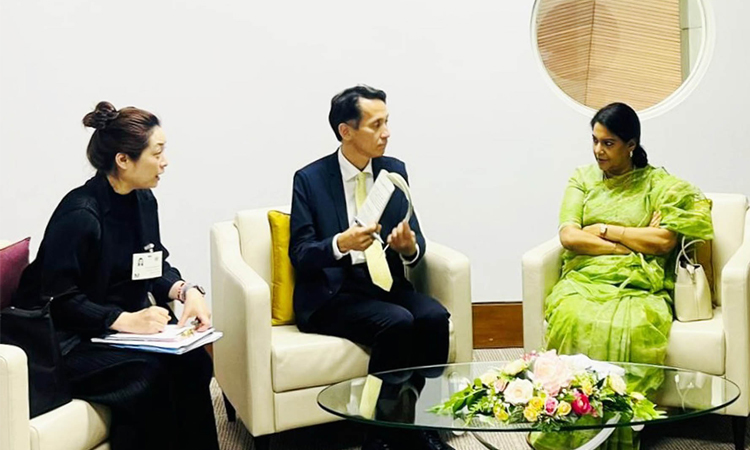News Flash

DHAKA, Oct 02, 2025 (BSS) - Syeda Rizwana Hasan, Adviser to the Ministry of Environment, Forest and Climate Change and the Ministry of Water Resources, has called for enhanced global cooperation, finance and technology transfer to achieve transformational adaptation in the face of climate change.
She made the call while speaking at the Ministerial Roundtable of the 9th Asia-Pacific Climate Change Adaptation Forum held under the theme 'Resilience for All: Catalyzing Transformational Adaptation' in Bangkok on October 1, an official release said today.
"Bangladesh has proven that adaptation is possible even under extreme vulnerability," Rizwana said, adding "But to deliver transformational change, the global community must step up with scaled-up finance, technology transfer and stronger international cooperation."
She emphasized that transformational adaptation requires a shift from short-term, incremental approaches to long-term, systemic integration across key sectors such as agriculture, water, biodiversity, and coastal management.
Wider adoption of climate-smart technologies, nature-based solutions and renewable energy was identified as essential for building sustainable resilience, she said.
Highlighting Bangladesh's bold adaptation efforts, she pointed to the Bangladesh Climate Change Strategy and Action Plan and the National Adaptation Plan (NAP), which outlines 113 interventions across eight thematic areas with an estimated implementation cost of USD 230 billion.
Rizwana also highlighted the Bangladesh Climate Change Trust Fund (BCCTF), the world's first country-led adaptation fund, which has successfully financed various climate-resilient projects across the country.
In the area of disaster preparedness, she noted that Bangladesh's Cyclone Preparedness Programme has mobilized over 78,000 volunteers-half of them women-and supported the construction of 4,291 cyclone shelters and 523 flood shelters.
The programme has also introduced multipurpose rescue boats for persons with disabilities and community radio services to enhance early warning systems.
On the food security front, Bangladesh has introduced drought, salt, and flood-tolerant rice varieties and innovative agricultural practices such as floating cultivation in wetlands.
Ecosystem-based adaptation initiatives have restored degraded lands in the Barind Tract and Haor wetlands, while co-management practices in Tanguar Haor have helped conserve biodiversity and strengthen community resilience.
"Strong policies and governance, community-based leadership and innovative financing have been the cornerstone of Bangladesh's successful adaptation journey," Rizwana said.
DOI Kentaro, Vice Minister for Global Environment Affairs of Japan; John Warburton, Head of Climate Change and Environment at the Indo-Pacific Regional Department of the British High Commission in Delhi; Dechen Tsering, Regional Director of UNEP Asia and the Pacific Office; Noralene Uy, Assistant Secretary of the Department of Environment and Natural Resources of the Philippines; and Anouj Mehta, Country Director of the ADB Thailand Resident Mission, also spoke on the occasion.